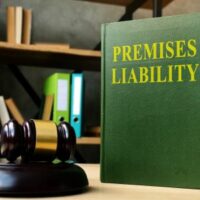Your Florida Slip And Fall Case May Require Proof Of Constructive Notice

Those who are injured in slip and fall accidents on someone else’s property usually need to prove more than just that they were hurt while on that person’s premises. The reality, in fact, is that these types of cases tend to be more complicated than most people realize. For instance, one key element of many slip and fall cases is something known as constructive notice, or proof that an owner knew that the hazard existed, or had enough time to discover the existence of that hazard, but failed to do so. To learn more about the types of evidence that you may need to prove constructive notice in your own slip and fall accident case, please call one of our experienced Fort Lauderdale premises liability lawyers today.
Can I Demonstrate Actual Knowledge?
While most property owners are required to use a certain degree of care in keeping their premises safe for visitors, they can actually only be held liable for an injury on their property if the victim can prove that the owner had actual or constructive knowledge of the danger. Actual knowledge, as its name suggests, would require proof that the owner knew about the particular hazard on the property, but failed to rectify it. A video recording, for instance, of an employee walking past a spill on the floor and failing to clean it, could provide proof of this type of knowledge. Unfortunately, proof of this kind of knowledge is difficult, and often impossible, to obtain.
What is Constructive Knowledge?
Fortunately, just because there is no evidence that a property owner actually knew of a hazard on its property, does not mean that he or she can’t be held liable for resulting injuries. This is because plaintiffs still have the option of proving that a property owner had constructive knowledge of the hazard on the property. This, in turn, can be achieved by establishing that:
- The dangerous condition existed for so long that the owner would have known about it if they had been using ordinary care; or
- The dangerous condition happened so often that it should have been foreseeable to the owner.
Issues regarding constructive knowledge tend to arise most often in cases that involve spills or transitory substances at retail stores. In these situations, an injured party will need to prove more than just that the spill was on the floor, but that it was there for a significant period of time. The size of the spill, for instance, could demonstrate how long the spill was there before the fall. While a trickle down the wall from a leak could have occurred seconds before a person fell, a sizable puddle from a significant stream, on the other hand, indicates that a leak was present for some time. Substances that have clearly been trodden on (demonstrated through footprints) can also help prove that a hazard was present at least long enough for an employee to discover it.
Call Today for Help with Your Case
If you were injured on someone else’s property, you could be entitled to damages. Please call Boone & Davis at 954-566-9919 to speak with one of our dedicated premises liability lawyers about your legal options.
Resource:
leg.state.fl.us/Statutes/index.cfm?App_mode=Display_Statute&URL=0700-0799/0768/Sections/0768.0755.html
